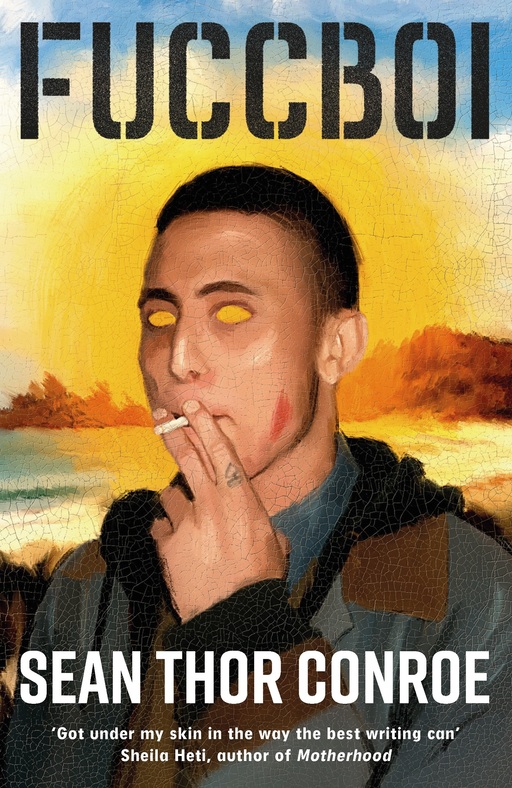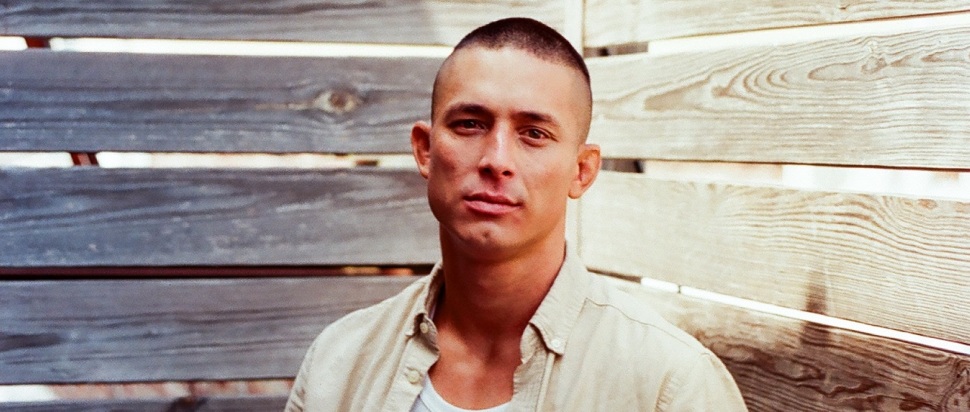How to be a modern man: Fuccboi and masculinity in fiction
As Sean Thor Conroe's Fuccboi arrives in a blaze of controversy, Katie Goh considers it in the context of the so-called crisis of male representation in contemporary fiction
Where have all the bright young men gone? At the tail end of 2021, the book industry was tangling itself up in that question as news headlines questioned: “Why male authors are being written out of fiction” (Daily Mail), “[...] the dangers of women writers dominating fiction” (The Times) and “Where have all the young male novelists gone?” (Dazed). This crisis in male representation largely pivoted on the statistic that 57% of contemporary hardback fiction is being written by female novelists, while the majority of the 43% of published men are already well established within their careers. Where, these articles pondered, is the male equivalent of Sally Rooney, or Candice Carty-Williams, or Megan Nolan? Where are the young men making waves in contemporary literature?
Perhaps, this question of where are all the men needs the important additional caveat: where are all the white, middle-class, cisgender and heterosexual men? Because, contrary to the headlines, men are publishing very successful debut novels right now: Caleb Azumah Nelson, author of Open Water, won the 2021 Costa Book Award for First Novel; Douglas Stuart won the Booker prize for his debut novel Shuggie Bain in 2021; and Paul Mendez was shortlisted at the British Book Awards for his first novel, Rainbow Milk. Guy Gunaratne, Graeme Armstrong, Sang Young Park and Damian Barr also spring to mind as exciting novelists early in their careers, many of whom are considered underrepresented in the literary industry as working-class, LGBTQ+ and/or BIPOC male authors.
But aggressively heteronormative, male-centric fiction is certainly a harder sell in 2022 than it would have been in 2002. Particularly in the post-Trump, post-MeToo years, there’s less of a readership for the Great Male Novelist, à la Philip Roth, Martin Amis and Ian McEwan, and publishers might be wary of trying to market books about toxic young men doing toxic young men stuff. This is a pressing concern for the narrator of Sean Thor Conroe’s aptly named debut novel, Fuccboi. The eponymous fuccboi in question is a young American novelist – also called Sean Thor Conroe – who is trying to publish his debut novel in late-2010s Philadelphia. Early in the novel, a female editor tells Sean to remove all the “rape-y parts” of his book, “every savage, ugly, testosterone-fuelled, shameful thing [that] had been the most difficult to write.”

The fictional Sean embodies an essence of modern, youthful masculinity: he’s a chaotic, artsy “sus hetero bro” in his late 20s, writing novels, dropping SoundCloud raps and working as a food delivery biker. Fuelled by Adderall, coffee and molly, Sean swaggers around Philadelphia seeing his guy friends (“bros” with initials instead of names) and female sexual conquests (the nameless “ex bae”, “side bae” and “editor bae”). Plotwise, not much happens over the course of the novel. Set during the Trump years, real life events occur at the margins of the story – Sean cycles past rallies and protest marches – but Fuccboi’s central concern is how to paint a realistic portrait of the artist as a young man in the 21st century.
Minimalist, staccato dialogue, recalling rap bars, narrates Sean’s simultaneously self-pitying and ego-driven adventures around the city. He is both “a modern-day hunter, riding my horse-bike around, delivering food to these basic fucks” and a young man hunched over a bike in the freezing rain, developing a skin condition and being screwed over by late capitalist big tech. Artistically, he is fighting against literature that is “masturbatory bullshit completely irrelevant to the culture”, yet adoringly namedrops canonical authors, like Friedrich Nietzsche, David Foster Wallace and Haruki Murakami. Sean is similarly torn up when it comes to modern gender politics: he despises neoliberal feminism, yet gets turned on by his own self-declared “wokeness”. How to be a modern man and win is Fuccboi’s central dilemma. Over the course of the novel, it is Sean’s self-conscious, internal battles over conflicting politics, perspectives and ethics that gets him both closer to and further away from an answer to that question.
Fuccboi arrives in a blaze of hype and controversy (including accusations of plagiarism). For readers who have felt like young male hotshots have been missing in contemporary literature, the novel’s testosterone-fuelled vivaciousness certainly fills that gap. But reading Conroe’s novel in the context of conversations around male representation in literature emphasised that there is no longer a one-size-fits-all ideal of masculinity on the page. Fuccboi is a book about a specific sect of young men, and Conroe joins a wave of debut fiction being published this year that explores various facets of masculinity, from authors like Moses McKenzie, Liam Konemann, Daniel Wiles and Ryan O’Connor.
We are all a product of our time, and for Conroe’s protagonist, his crisis of masculinity is also modern America’s crisis of masculinity. If men are still choking on the toxicity of historical conventions of gender, then literature should be a welcoming space for exploring, questioning and airing the “savage, ugly, testosterone-fuelled, shameful” things that we would all rather repress – regardless of gender.
Fuccboi is out now via Wildfire
